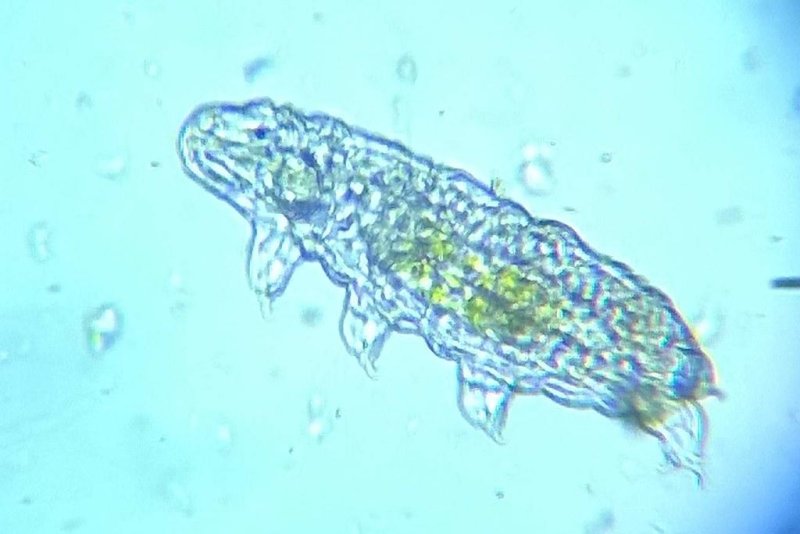Tardigrades aren't immune to the effects of global warming. Photo by Peter von Bagh /
Flickr
Jan. 13 (UPI) -- Tardigrades are known for their remarkable resiliency. The tiny organisms are capable of withstanding extreme conditions, but new research suggests they're not immune to the effects of global warming.
Tardigrades, sometimes called water bears or moss piglets, are microscopic invertebrates with barrel-shaped bodies and four pairs of legs. The micro-animals are found in a variety of environs, including marine, freshwater and terrestrial micro-habitats, and feed on plant cells, algae and other small invertebrates.
To measure the impacts of global warming on tardigrades, scientists exposed dozens of water bears to elevated temperatures in the lab.
"The specimens used in this study were obtained from roof gutters of a house located in Nivå, Denmark," Ricardo Neves, postdoctoral researcher at the University of Copenhagen, said in a news release. "We evaluated the effect of exposures to high temperature in active and desiccated tardigrades, and we also investigated the effect of a brief acclimation period on active animals."
Tests showed tardigrades that weren't acclimated to the heat couldn't survive temperatures above an average of 37.1 degrees Celsius (98.78 degrees Fahrenheit). For water bears subjected to a short acclimation period, the median lethal temperature was slightly higher, 37.6 degrees Celsius (99.68 degrees Fahrenheit).
Tardigrades, of which there are more than 1,000 known species, can survive more extreme conditions when they're desiccated -- having dehydrated their bodies and slowed their metabolism to a halt as part of a process called cryptobiosis.
Desiccated specimens didn't reach the 50 percent mortality mark until the thermostat remained at 82.7 degrees Celsius (180.86 degrees Fahrenheit) for an hour. When desiccated specimens were exposed to heat for 24 hours, the average lethal temperature was 63.1 degrees Celsius (145.58 degrees Fahrenheit).
Scientists have previously documented the ability of tardigrades to withstand high heat for short periods of time, but previous studies haven't looked at the effects of prolonged exposure or studied the effects of elevated temperature on desiccated specimens.
Scientists published the results of their experiments in the journal Scientific Reports.
"From this study, we can conclude that active tardigrades are vulnerable to high temperatures, though it seems that these critters would be able to acclimatize to increasing temperatures in their natural habitat," Neves said. "Desiccated tardigrades are much more resilient and can endure temperatures much higher than those endured by active tardigrades. However, exposure-time is clearly a limiting factor that constrains their tolerance to high temperatures."















